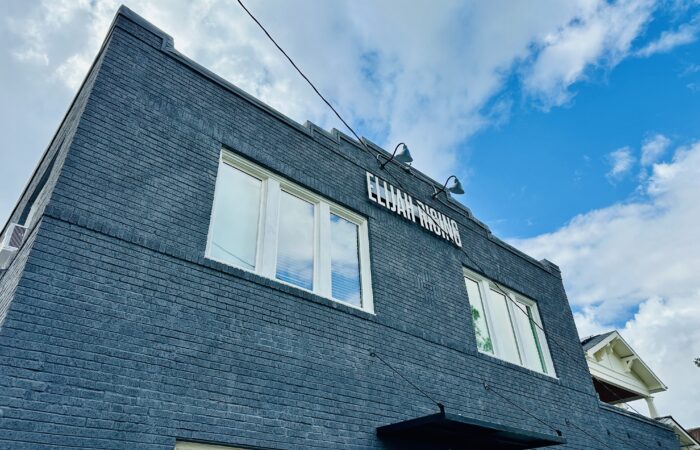Written by Annika Bergen
Originally published in the September 2018 issue of Citizen magazine.
HUMAN TRAFFICKING.
It’s an intimidating term. According to the Global Slavery Index of 2016, an estimated 40.3 million people are trafficked around the world—and a huge percentage are women who are exploited sexually.
With such high numbers, the task of rescue can seem daunting, if not altogether impossible. What can the average Christian do?
A lot, apparently.
What if you could break open a trafficking ring, just by standing in a parking lot and praying? What if you could shut down a brothel simply by bringing in a few cherry limeades to the workers?
Meet Elijah Rising, an eight-year-old anti-trafficking ministry in Houston, Texas. Their volunteers are average folks. They have children. They run carpools for soccer practices and music lessons. They go to church.
And they know how to wage war in the spirit.
In the Beginning
Elijah Rising Executive Director Micah Gamboa, 32, first got involved by stumbling upon a blog by the Missouri- based anti-trafficking group Exodus Cry, and later found it was hosting a local screening of its documentary Nefarious. So she gathered some friends and went.
“Our founder, Cat French, was up there speaking,” Gamboa tells Citizen. “After the movie, she started speaking about how this was a spiritual issue and how we needed angels and demons to move to see breakthrough.” Afterward, Gamboa joined a prayer meeting and a class to learn about the basics of trafficking. The prayer group called themselves Exodus Cry Houston Prayer Watch, but later formed a new ministry under the name Elijah Rising.
In late 2009, they took a van full of people to La Costenita, a bar known throughout Houston’s barrios for offering prostitution. The prayer group went during the day, before the cantina opened for business that evening. They stood in the parking lot and sang, played music and prayed.
As the prayer meeting came to a close, a train passed by on the tracks across the street. Printed on the side of every train car was a phrase the group took as a message from Heaven: “WE WILL DELIVER.”
A couple months later, local police raided La Costenita.
According to a February 2010 article in The Houston Chronicle, the Houston Police Department received a tip from the Texas Alcoholic Beverage Commission (TABC), which had been surveilling the cantina. When a member of the trafficking ring spotted the agent’s sedan, he fled, accidentally dropping his keys. That allowed the TABC agent and the police to enter, freeing the women being held captive inside.
The cantina was shut down, and authorities rescued 84 women. This miraculous answer to prayer was just the beginning of story after story of God coming through for Elijah Rising.
Brothels for Adoption
In 2013, the folks at Elijah Rising realized there were several hundred sexually oriented businesses (such as strip clubs or brothels thinly veiled as “massage parlors”)in the Houston metro area. Shutting them down seemed like a daunting task, until they considered the number of churches in the same area—nearly two thousand.
“We were going to have churches adopt locations in prayer outreach,” explains Sam Hernandez, 27, Elijah Rising’s director of social enterprise.
At the same time, Debra Parker, 41, a wife and mom of four, had been running her own prayer initiative for some time and was looking for a new opportunity.
“Houston is a huge hub for trafficking, so we had all kinds of women in our churches wanting to be a part of ending human trafficking but not really knowing what to do,” Parker tells Citizen. In 2013, they heard Elijah Rising was looking for churches to pray.
“There were seven women from our church,” says Parker. “We had a group that was super eager to do something.” Parker and the other six women became the first test group for Elijah Rising’s new program.
Cherry Limeades and Prayer
Elijah Rising asked Parker’s group to pray for a certain brothel in Houston that posed as a massage parlor and spa. Twice a month, starting in November 2013, they would sit in the parking lot and pray.
“We would go at nine o’clock at night because we all had children,” Parker says. “Our plan was really just to drive there, pray while we were in the parking lot, and leave.”
For safety, a man from Parker’s church accompanied them in a separate vehicle, acting as a security lookout.
“The first few times, we really did just sit in our car and pray, but then we got really antsy,” Parker says. The women decided to buy cherry limeades from Sonic for the brothel workers. “We asked the Lord how many we should buy, and we felt like He told us to buy four.”
Three of the ladies took the four drinks into the brothel. A bell on the door dinged as they opened it. Inside, they discovered a small, pink-walled waiting room. The dimly lit area stood empty, save for an ATM machine and one small reception window with a curtain drawn over it.
“Going in the first time was pretty freaky because none of us were accustomed to anything like this,” Parker remembers. “We had never gone into a massage spa. We stood there for probably a good 30 seconds before anything happened. There wasn’t any bell to ring. They had already been alerted that we were there from the door, but there wasn’t anything else to really do, so we just stood there.”
Eventually a middle-aged Asian woman with heavy makeup drew back the curtain and greeted them.
“She said, ‘Hey honey, how are you guys?’ ” Parker says with a laugh. “We were all like, ‘I don’t know.’
“We told her, ‘We brought Sonic drinks. Would you like some drinks?’ She said, ‘Sure.’ We asked how many girls worked there, and she said, ‘Four.’
“We said, ‘Oh great, that’s how many drinks we have.’ We passed the drinks over through the window and then we left. We were like, ‘Thank you, we just wanted you to know we were praying for you guys.’ [It took] maybe all of two minutes, and then we walked out. We felt crazy.”
Shutting the Doors
That first interaction took place in November 2013. A month later, they bought the workers four Chick-fil-A milkshakes. Again, they had a brief encounter with the woman behind the window, then left.
Near the end of January 2014, one of the women from Parker’s prayer group researched the brothel to find out who owned the property. She and French, Elijah Rising’s director at the time, contacted the landlord and told him they would expose him for having a sexually oriented business on his premises.
As a result, he “essentially decided to close down the brothel,” Parker says. “He knew he was in the wrong, and we were basically saying, ‘You’re going to be outed.’ “
The landlord hired a police officer and a lawyer to evict the brothel’s staff. And he invited Parker, French and another woman involved in anti-trafficking efforts in Houston to be present when it occurred—on Valentine’s Day—so they could invite the girls who lived there to go to a safe house.
“We were just moms,” Parker says. “We had no idea what we were doing.
“We had been praying for the close of the brothel. That was our specific prayer: ‘Lord, shut down these doors.’ After a few months of doing that, reaching out to the landowner and a few different things, the doors were literally shut.”
Not only did God shut the doors—He gave Parker the keys, via French. So Parker’s team of seven was allowed to go in and pray.
“We sat on our knees in a circle in the hallway,” she says. “This group somehow ended up inside the empty spa.”
The Care Continues
Closing down the brothel would have been enough of an answer to prayer, but the story didn’t end there.
The day of the eviction, none of the brothel workers opted to go to a safe house. It turned out they all had homes in the area, and only stayed at the brothel a few weeks at a time. However, the woman from behind the window, Jasmine, did ask the group for a ride home; it turned out she lived only a few minutes from Parker’s house across town. After dropping Jasmine off at her apartment, Parker felt a burden to continue caring for her.
“I’d taken away her livelihood,” Parker explains. So she returned the next week with a grocery gift card, and was surprised to find that Jasmine had a 12-year-old daughter, Lila. Parker kept coming back with gifts for them, and eventually invited them to church. Lila accepted, sparking a friendship between her and Parker’s family.
A year and a half later, Jasmine called: Lila had been taken away by child protective services, and Jasmine wanted Parker to be the foster parent. So Parker and her family took Lila in to live with them for about six months. Lila eventually was allowed to return to her mother, and their friendship with the Parkers continues.
Prayer is Just the Beginning
“Their story taught me that human beings need someone to walk alongside them,” Parker says now. For her, prayer was just the beginning of years of friendship and love.
Gamboa, Elijah Rising’s current director, agrees.
“Prayer is nothing without action,” she says. “The first step is just to say, ‘OK, Lord, where do You have me? Where is my next step?’ And then to take that next step. For many of us, it was little-by-little steps of obedience and just doing what was in front of us.”
Gamboa encourages everyone to get involved in this fight.
“The Lord is so faithful, because justice and righteousness are two elements that are the foundation of His throne,” she says. “He will have a place for you in this fight. It might not be full-time with a trafficking organization, but there is still a place for each person’s unique gifts and talents.”




